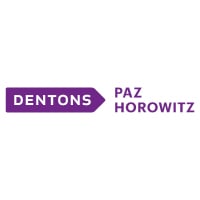

Compliance officer | INTEROC




Andrea Yoncon Romero
Compliance officer | INTEROC
Team size: Four
What are the projects that you are most proud of working on over the past 12 months?
Over the past 12 months, one of the projects I am most proud of has been the development and implementation of a comprehensive compliance management system within INTEROC S.A. This initiative aimed to strengthen corporate governance, ensure regulatory adherence, and foster a culture of integrity and accountability within the organisation. By establishing clear policies, processes, and controls, we have been able to create a more structured and effective compliance framework that minimises risks and enhances operational transparency.
A fundamental part of this project was the creation and implementation of due diligence policies. These policies were designed to improve the company’s ability to assess and manage risks associated with third parties, business partners, and transactions. By incorporating international best practices and aligning with national regulatory requirements, these policies have helped reinforce ethical business conduct and mitigate potential compliance risks. They also serve as a proactive mechanism to prevent legal issues, protect the company’s reputation, and ensure responsible decision-making at all levels.
Another significant achievement has been my involvement in the implementation of a personal data protection system, ensuring compliance with Ecuador’s data protection laws. As data privacy regulations continue to evolve globally, it was essential to establish internal mechanisms that guarantee the responsible handling of personal information. This project included the development of policies and procedures for data collection, processing, storage, and security, aligning the company with both legal obligations and best industry practices. By implementing these measures, we have strengthened the organisation’s ability to safeguard sensitive information and maintain the trust of employees, customers, and stakeholders.
These initiatives reflect my commitment to building a strong compliance culture and ensuring that the organisation operates within ethical and legal boundaries. Beyond regulatory compliance, these efforts contribute to long-term business sustainability, corporate responsibility, and stakeholder confidence. I am proud of the positive impact these projects have had on the company’s internal operations and external reputation, and I look forward to continuing to develop initiatives that promote transparency, legal integrity, and corporate excellence.
How do you approach managing legal aspects during periods of instability or crisis to ensure the organisation’s resilience?
Effectively managing legal aspects during periods of instability or crisis requires a proactive, strategic, and adaptable approach to ensure the organisation’s resilience. My primary focus in such situations is to anticipate potential legal risks, develop contingency plans, and provide clear and timely guidance to key decision-makers.
One of the first steps I take is conducting a thorough risk assessment to identify the immediate and long-term legal challenges that could arise from the crisis. Whether the instability is due to regulatory changes, economic downturns, operational disruptions, or external factors, understanding the legal implications allows for a more structured and effective response.
Once the risks are identified, I work on implementing clear protocols to ensure compliance with legal and regulatory requirements while maintaining business continuity. This includes updating internal policies, reinforcing compliance mechanisms, and ensuring that contractual obligations are properly managed to minimise liabilities.
Additionally, I prioritise open communication and close collaboration with senior management and other departments. By providing clear legal guidance, I help leadership make informed decisions that align with both the company’s strategic goals and its legal responsibilities. In times of crisis, having a well-defined legal strategy not only mitigates risks but also strengthens stakeholder confidence and corporate stability.
Another key aspect of my approach is flexibility and adaptability. Crises often require rapid responses, and legal strategies must be adjusted accordingly. This means continuously monitoring the situation, staying updated on regulatory developments, and being prepared to implement changes as needed.
Ultimately, my goal is to ensure that legal challenges do not become barriers to the organisation’s operations but rather opportunities to reinforce resilience and long-term sustainability. By fostering a strong compliance culture and maintaining a proactive legal approach, I help the company navigate crises effectively while upholding ethical and legal standards.
What strategies do you employ to ensure the successful digital transformation of a legal department while maintaining compliance with your country’s data protection laws?
Ensuring the digital transformation of a legal department while complying with data protection laws requires a strategic balance between innovation and security.
We partner with specialised providers to implement secure electronic signatures, digital contracts, protected repositories, and a high-security intranet. These tools enhance efficiency while safeguarding sensitive information. Additionally, we enforce strict data governance policies, conduct regular audits, and train employees on data protection best practices.
By aligning digital initiatives with legal requirements and international security standards, we create a more agile, efficient, and resilient legal department while mitigating cybersecurity risks and ensuring regulatory compliance.
What do you think are the most important attributes for a modern in-house counsel to possess?
A modern in-house counsel must be adaptable, proactive, and continuously learning. Staying updated on legal developments, industry trends, and emerging risks is essential to providing strategic and forward-thinking advice.
With the rapid advancement of technology, leveraging artificial intelligence and legal tech tools is now a key competency. AI enhances efficiency, streamlines contract management, improves compliance monitoring, and allows legal teams to focus on high-value tasks. However, critical thinking remains crucial to interpreting AI-generated insights and ensuring ethical decision-making.
Additionally, strong business acumen is vital. An in-house counsel must understand the company’s operations, objectives, and risk appetite to provide legal guidance that aligns with corporate strategy. Clear communication, problem-solving skills, and a collaborative mindset are equally important for working across departments and driving solutions.
Ultimately, a successful in-house counsel is not just a legal expert but a strategic partner who balances innovation, compliance, and business goals effectively.